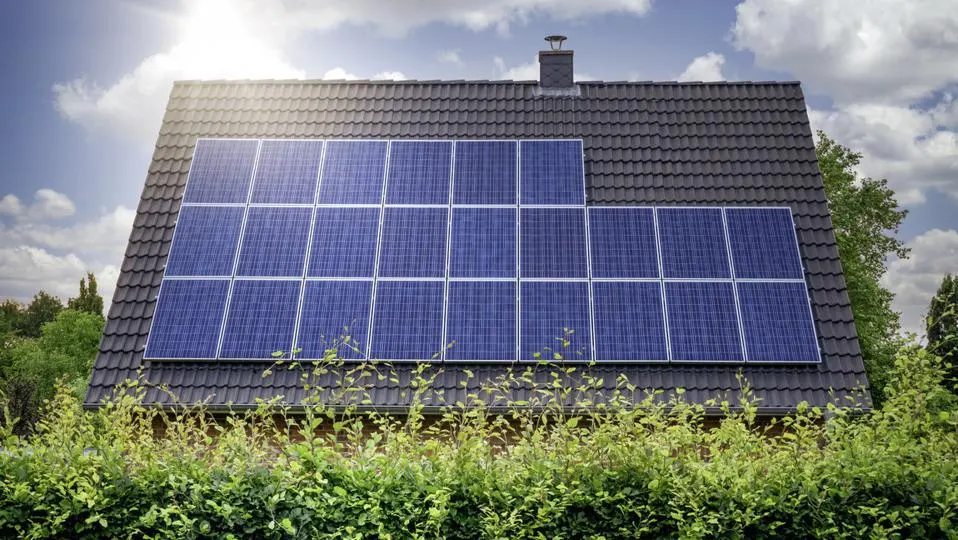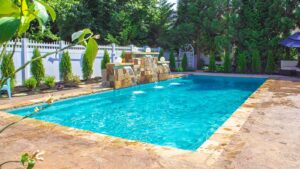
The greater our awareness of environmental issues, the more families will consider installing solar panels. People are aware of clean and renewable energy now like never before. Therefore, it is best to save money on your power bill while keeping a clear conscience.
However, as with all matters, we must thoroughly consider all actions before implementing them. For a solar panel installation, you need to look at both roof orientation and local regulations. A complete analysis will help people make the right choice in adopting solar energy among all concerned, from the perspective of both ecology and politics. This is a summary of the major points to consider. You need to make an intelligent choice.
How Solar Panels Function
If you want a solar panel installation, it would be wise to learn about them. Turning sunlight into energy largely depends on solar photovoltaic (PV) cells. These cells are usually made of semiconductors, such as silicon. If they absorb sunlight, their electrons flow, and a current is established.
Electricity generated in this way could be used immediately. If your house has an immediate need for power supplies, rest assured. And if you don’t require it just now, it can be stored in batteries until the time that you do. Go now and be green. It will fill your living area with renewable energy for those days when the electricity supply is cut off. Otherwise, you might have to put up with a power shortage. If you don’t understand how the process works or what the essential aspects are, you can’t make an informed decision among the many solar panels available today.
Three types of solar panels exist: monocrystalline, polycrystalline, and thin film. In terms of performance, appearance, and cost, these styles are different. The type that will suit you best depends on your specific needs and budget.
Is My Home Suitable for Solar?
To judge whether your home is fit for solar panels, you need to consider a number of factors to assess their real-world performance and efficiency. Here are several key points to go over when deciding.
Solar Radiation
The quantity of sunlight received at your location is important to determine how effectively your solar panels are operating. Sunlight and its effect on your home must also be examined in the summer and winter. Solar panels will perform optimally since sunlight will be at its peak for the longest periods of time. Once you see the features of the rooftop laying in your local area, you can figure out how useful sun power is to individual solar cells and assess the productivity of various types of solar energy available on the market. If it is to examine sunshine features, the ones you subsidise to have solar panel arrays installed will serve as planned—they will be as predicted. Use the many resources available for getting solar power into your home.
The slope and orientation of the roof have a significant influence on solar panel effectiveness. Roofs facing south get more sunshine, meaning they produce more energy. The tilt angle of your roof is important. Solar panels tend to be angled at a height equal to their location’s latitude. Careful treatment of orientation and tilt maximises solar panel exposure to the sun. Overall, the energy conversion rate of your house can go up in this way. But if you plan it carefully and think about these factors when putting the solar energy roof in place, it will last for a long time.
Space and Condition of the Roof
Before a solar panel installation, look at your roof carefully to make sure it can bear the weight of the solar equipment. Switch out any needed repairs for replacements and have this done ahead of time. Also, the size of the sky overhead indicates that only this many solar panels is a good number. Look at the shade from surrounding buildings as well, as it makes solar panels less effective. A physically strong and empty roof area can hold a solar power system pretty well. This guarantees the performance of your investment.
Relevant Financial Aspects
It is crucial to balance the return on investment of solar panels with their economic impact. In general, solar panels are the most important cost factor.
Cost of Solar Panels
A solar panel installation might seem expensive at first, but there are long-term savings on power bills. There are incentives, refunds, and tax credits from many governments and utilities to induce the use of solar energy. To see if installing solar panels is economically wise for your individual case, you should calculate the time to recoup your initial investment in a given number of years.
How to Finance Solar Panels?
If you don’t have the initial money, consider alternative financing mechanisms like solar loans and leasing. Some sell power-purchase agreements (PPAs), where you purchase their energy without actually buying the panels. But remember to carefully read the terms and conditions before deciding on a financing scheme.
Maintenance and Lifespan
Solar panels require proper maintenance to be durable and efficient. In spite of their durability and low-priced maintenance, solar panels do not just need periodic care. Solar panel maintenance and lifespan considerations:
Maintenance Issues
Solar panels require regular maintenance. Once in a while, some cleaning and checking are necessary. Dust, dirt, and bird droppings lower efficiency, so make sure to clean frequently. Also, please verify the presence of any structural shade caused by neighbouring trees or buildings.
Age of Renewal
Solar panels can last 25 to 30 years under normal conditions. Consider the manufacturer’s warranty and the panels’ predicted degradation. A properly installed system and good maintenance can prolong the life of your solar panels.
In Summary
A solar panel installation requires careful consideration of a variety of elements. How well do solar panels work? Is your home compatible? And what are the financial issues? All are important in making an informed decision. Furthermore, addressing the question of what to do and how to go about solar hot water installation can help fulfil your sustainability desires. Carefully consider those factors, and you can take the first steps towards a greener, more energy-efficient home.








